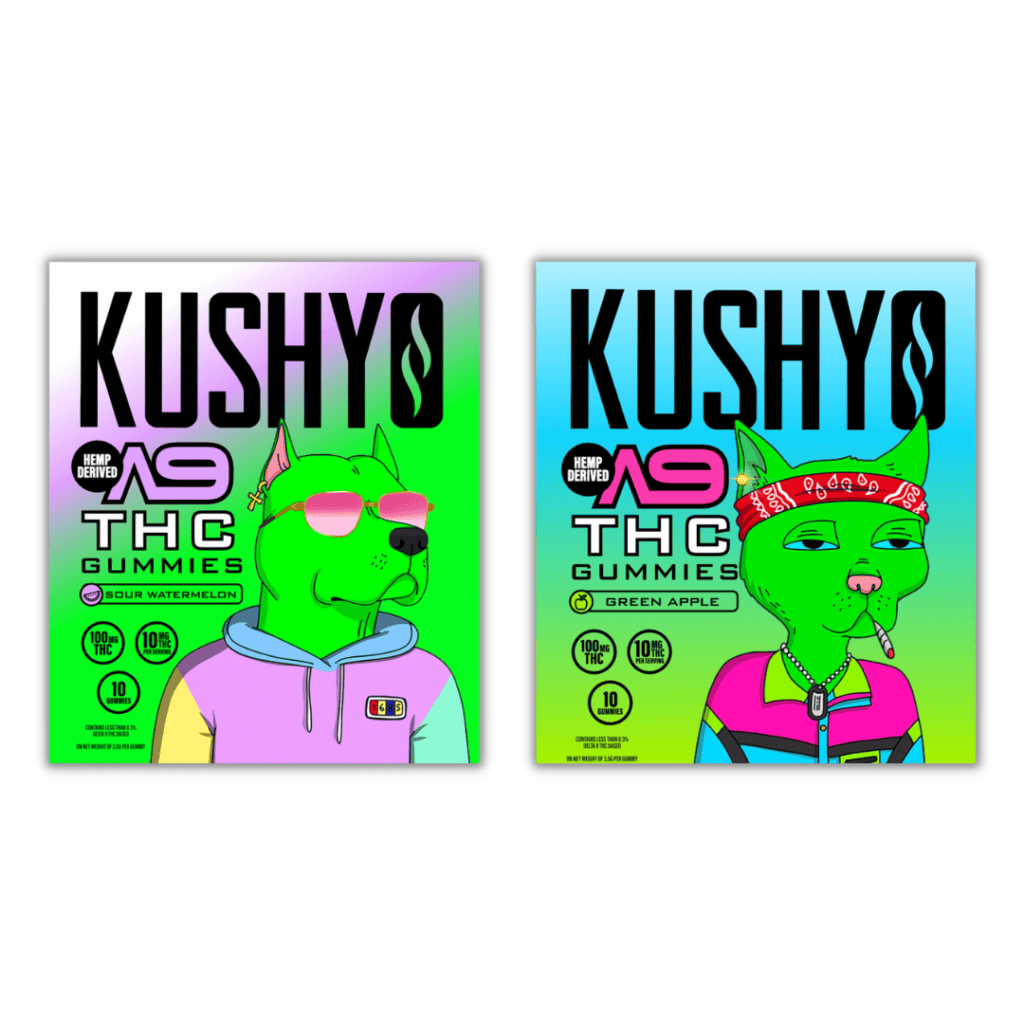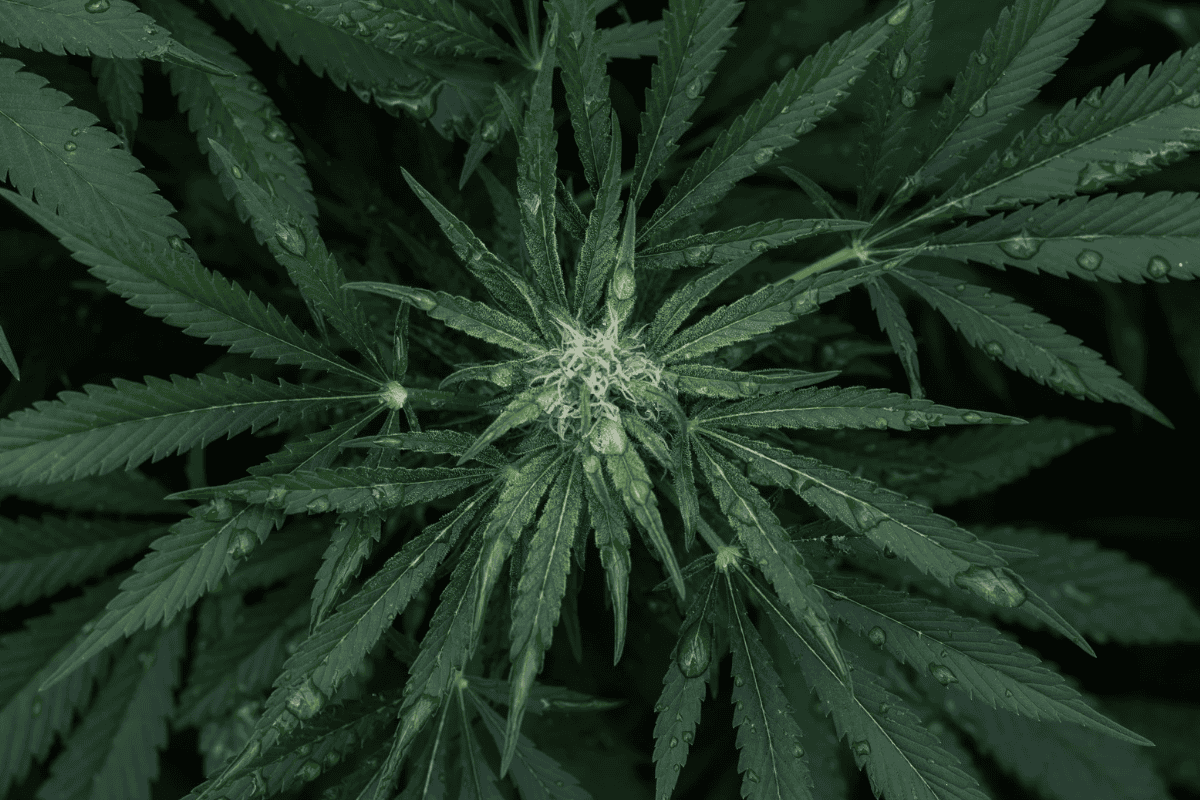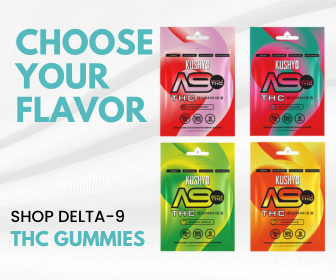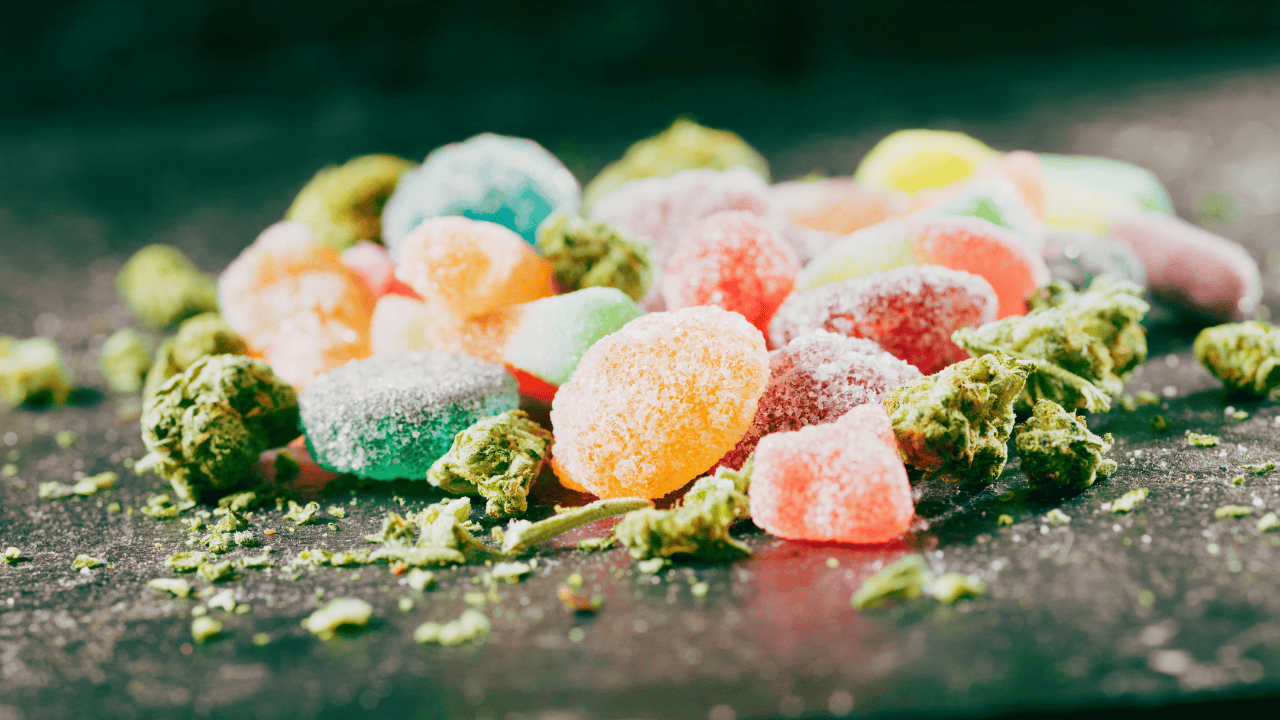These edibles have a lot in common but they’re definitely not the same
In recent years, the cannabis industry has experienced rapid growth and innovation, resulting in a wide array of products for consumers to choose from. Among the most popular are THC-infused gummies, which come in various forms, including Delta-8 THC gummies and Delta-9 THC gummies derived from both marijuana and hemp. As these gummies gain popularity, it’s essential for consumers to understand the distinctions between them to make informed decisions about which product best suits their preferences and needs.
Recognizing the differences between Delta-8 THC gummies and Delta-9 THC gummies (both marijuana and hemp-derived) is crucial for several reasons. For one, the legal status of each type of gummy can vary depending on federal and state regulations. Additionally, each gummy type may offer unique effects, potency levels, and potential medical benefits, which can significantly impact a user’s experience. Understanding these differences can help you navigate this world and make more informed choices when purchasing cannabis edibles.
This article will delve into the nuances that set Delta-8 THC gummies apart from marijuana and hemp-derived Delta-9 THC gummies. We will explore their chemical makeup, legal status, extraction and production methods, effects and potency, taste and flavor profiles, consumer preferences, and market trends. By the end of this article, you will have a comprehensive understanding of these distinct types of THC gummies and be better equipped to choose the right product for their individual needs.
What Are Delta-8 and Delta-9 THC?
Delta-8 THC, or delta-8-tetrahydrocannabinol, is a naturally occurring cannabinoid found in small quantities in both marijuana and hemp plants. It is a close chemical relative of Delta-9 THC, with only a slight difference in their molecular structure. This subtle difference, however, has a significant impact on the way Delta-8 THC interacts with the body’s endocannabinoid system, resulting in a milder psychoactive effect when compared to Delta-9 THC. Delta-8 THC is often praised for providing a more mild level of psychoactivity, with some users reporting increased focus, relaxation, and general relief without the intense and sometimes overwhelming effects of Delta-9 THC.
Delta-9 THC, or delta-9-tetrahydrocannabinol, is the most well-known and abundant psychoactive cannabinoid found in marijuana plants. It is responsible for the “high” that people typically associate with cannabis consumption. When consumed, Delta-9 THC binds to the CB1 receptors in the brain, triggering a range of psychoactive effects, including euphoria, heightened sensory perception, and altered cognitive function. Delta-9 THC is also present in hemp plants, but in much lower concentrations (less than 0.3% by dry weight), which is insufficient to produce intoxicating effects.
Where did it come from?
Delta-9 THC was first isolated and synthesized by Israeli scientist Dr. Raphael Mechoulam in 1964. This groundbreaking discovery paved the way for further research into the properties and potential medical applications of various cannabinoids, including Delta-8 THC, which was identified shortly after. Despite being discovered over half a century ago, Delta-8 THC has only recently gained attention in the cannabis market, primarily due to advancements in extraction techniques that enable its production in higher concentrations.
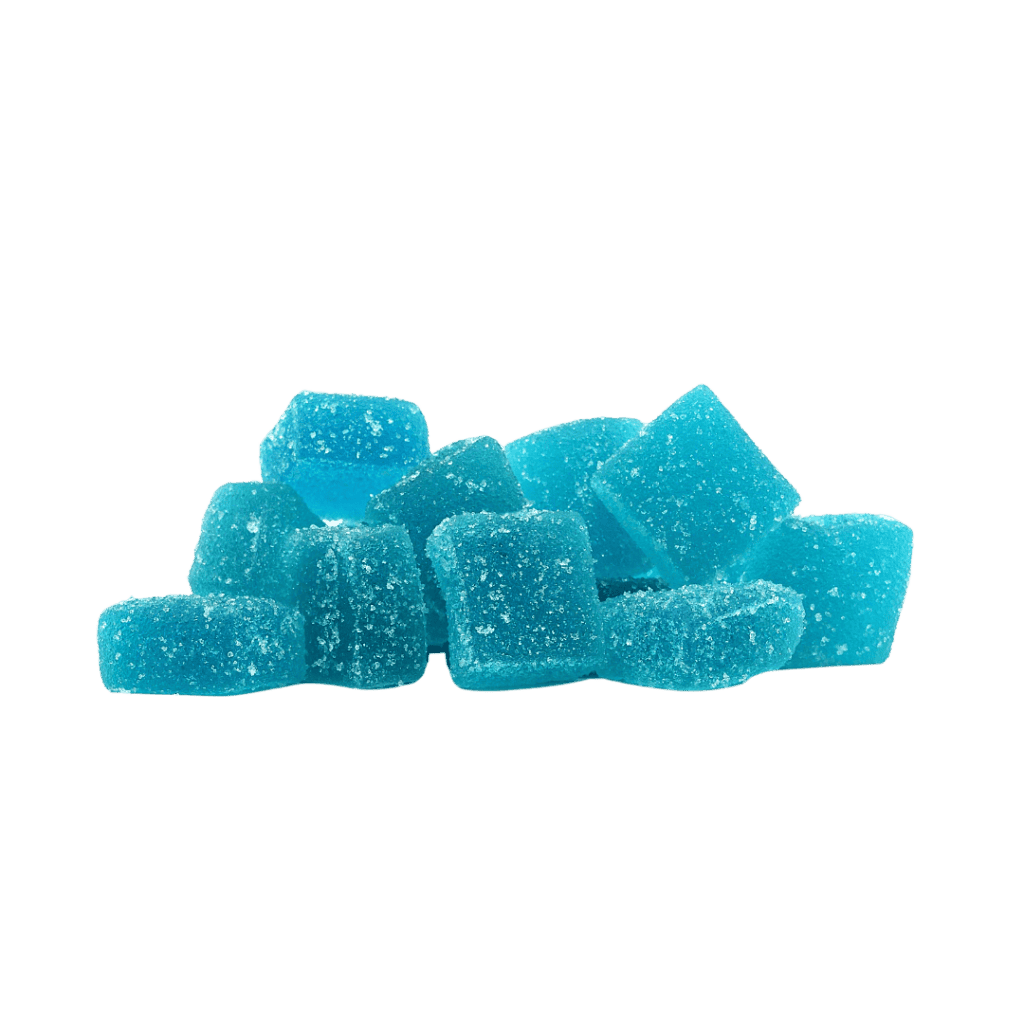
Delta-9 Gummies: Marijuana-derived vs. hemp-derived
Delta-9 THC The primary distinction between marijuana-derived and hemp-derived Delta-9 THC lies in the source plant and the concentration of THC present. Marijuana-derived Delta-9 THC comes from cannabis plants with THC concentrations typically above 0.3%, while hemp-derived Delta-9 THC is extracted from industrial hemp plants with THC levels below the 0.3% threshold.
This difference in concentration has a direct impact on the psychoactive effects, potency, and legal status of the resulting gummies. Hemp-derived Delta-9 THC gummies generally have a lower psychoactive effect compared to their marijuana-derived counterparts, making them an appealing option for those seeking milder experiences or the potential medicinal benefits of THC without a strong high.
Legal Status and Availability
The legal landscape surrounding Delta-8 and Delta-9 THC is complex and varies depending on federal and state regulations. Federally, Delta-9 THC is classified as a Schedule I substance under the Controlled Substances Act, making it illegal. However, individual states have implemented their own legislation, with some allowing recreational and medical use of marijuana-derived Delta-9 THC products. On the other hand, Delta-8 THC exists in a legal gray area.
The 2018 Farm Bill was a landmark piece of legislation that removed hemp from the Controlled Substances Act and reclassified it as an agricultural commodity. It federally legalized hemp and its derivatives, including hemp-derived Delta-9 THC (with concentrations below 0.3%). This change significantly impacted the hemp industry, opening up new avenues for cultivation, research, and the production of various hemp-derived products, including CBD and hemp-derived Delta-9 THC products with less than 0.3% THC. The Farm Bill has also indirectly contributed to the rise in popularity of Delta-8 THC products, as manufacturers have found ways to convert CBD and other hemp-derived cannabinoids into Delta-8 THC.
Availability in the U.S.
The availability of Delta-8 THC gummies and Delta-9 THC gummies (marijuana and hemp-derived) in the United States is largely dependent on each state’s specific laws and regulations. In states where marijuana is legal for recreational or medical use, marijuana-derived Delta-9 THC gummies are readily available in licensed dispensaries. Hemp-derived Delta-9 THC gummies are more widely available due to their lower THC concentration and federal legality under the 2018 Farm Bill. However, individual state laws may still impose restrictions or bans on their sale and consumption. Delta-8 THC gummies, while enjoying a surge in popularity, face a more complicated legal landscape. Their availability is determined by each state’s stance on Delta-8 THC, which can range from full legality to complete prohibition. Consumers should thoroughly research their state’s regulations before attempting to purchase or consume Delta-8 THC gummies to ensure compliance with local laws.
Shop Extra Strength D8 Gummies
Extraction and Production
The extraction of Delta-8 and Delta-9 THC from cannabis plants is a critical step in the production of THC gummies. Various methods are employed to extract these cannabinoids, each with its advantages and drawbacks. Some common extraction techniques include:
- Solvent-based extraction: This method uses solvents like butane, propane, or ethanol to dissolve the cannabinoids from the plant material. The resulting solution is then filtered and purged of the solvent, leaving behind a concentrated cannabinoid extract.
- CO2 extraction: This technique utilizes supercritical CO2 to extract the cannabinoids from the plant material. The CO2 is forced through the cannabis at high pressure and low temperatures, effectively separating the cannabinoids without the use of harsh chemicals. The result is a pure, high-quality extract.
- Distillation: After initial extraction, cannabinoids can be further refined and purified through short-path or fractional distillation. This process separates the cannabinoids from other plant compounds based on their boiling points, yielding a highly concentrated, purified product.
The production processes for marijuana and hemp-derived Delta-9 THC are similar, as both involve extraction and refinement of the desired cannabinoid. The primary difference lies in the source plant material and the concentrations of THC present. Marijuana-derived Delta-9 THC is typically obtained from high-THC cannabis strains, while hemp-derived Delta-9 THC is extracted from industrial hemp plants with THC concentrations below 0.3%. The lower concentration of THC in hemp requires a more extensive refinement process to isolate and concentrate the desired cannabinoid.
More about potency and quality
Several factors can influence the potency and quality of THC gummies, including:
- Source material: The quality of the cannabis plant material used for extraction directly impacts the final product. High-quality, organically grown plants generally yield a more potent and pure extract.
- Extraction method: The extraction technique employed can affect the purity and potency of the final extract. Methods like CO2 extraction and distillation typically produce cleaner, more concentrated products compared to solvent-based extraction.
- Formulation: The formulation of the gummies, including the type and amount of carrier oil, sweeteners, flavorings, and other ingredients, can affect the overall potency and bioavailability of the THC in the product.
- Storage and handling: Proper storage and handling of THC gummies can help preserve their potency and quality. Exposure to heat, light, and air can degrade the cannabinoids, leading to reduced effectiveness over time.
Psychoactive effects of Delta-8 THC gummies and Delta-9 THC gummies (marijuana and hemp-derived)
While both Delta-8 THC and Delta-9 THC gummies produce psychoactive effects, the intensity and nature of these effects can vary significantly between the two types. Delta-8 THC gummies are known for providing a milder high, with users often reporting a sense of relaxation, increased focus, and general relief. These gummies are less likely to cause feelings of paranoia or overwhelming intoxication that can sometimes accompany Delta-9 THC consumption.
In contrast, marijuana-derived Delta-9 THC gummies typically produce a more potent and pronounced psychoactive effect, inducing euphoria, heightened sensory perception, and altered cognitive function. The intensity of these effects can vary depending on the specific strain of cannabis used and the gummies’ THC concentration.
Hemp-derived Delta-9 THC gummies, with their lower THC content, generally provide a milder experience compared to marijuana-derived gummies. These gummies may still offer some of the psychoactive effects associated with Delta-9 THC, but to a lesser degree.
Onset and duration of effects in gummy form
The onset and duration of effects for THC gummies can differ from other consumption methods, such as smoking or vaping. When ingested, THC is absorbed through the digestive system and metabolized by the liver before entering the bloodstream. This process can result in a slower onset of effects, typically ranging from 30 minutes to 2 hours after consumption. The duration of effects can also be more prolonged, lasting anywhere from 4 to 8 hours or even longer, depending on individual factors and the gummies’ potency.
Medical benefits and potential side effects
Both Delta-8 and Delta-9 THC gummies offer potential medical benefits, including pain relief, anti-inflammatory properties, appetite stimulation, and reduced nausea. Delta-8 THC gummies, with their milder psychoactive effects, may be particularly well-suited for individuals seeking relief. However, THC gummies can also have potential side effects. Some common side effects include dry mouth, dizziness, increased heart rate, and impaired coordination. More severe side effects, such as paranoia or panic attacks, can occur in some individuals, particularly those who are sensitive to THC or consume high doses.
Related: Sezzle Is Back So You Can Buy Now Pay Later
Typical dosages and how to consume responsibly
When consuming THC gummies, it’s essential to start with a low dose and gradually increase as needed to find the appropriate dosage for your individual needs. For first-time users, a dose of 2.5 to 5 milligrams of THC is often recommended. More experienced users may require higher doses to achieve the desired effects.
To consume THC gummies responsibly, it’s crucial to be aware of your personal tolerance and the gummies’ potency. Always read the label for dosage information and start slow, giving ample time for the effects to set in before considering additional doses. Additionally, avoid driving or operating heavy machinery while under the influence of THC and be mindful of potential interactions with other medications or substances.
Further Reading: Mayo Clinic Q and A: Treatment with medical cannabis
Current market trends and future predictions
The market for THC gummies, both Delta-8 and Delta-9, has experienced significant growth in recent years. The demand for alternative methods of consumption, coupled with the increasing legalization of cannabis products, has contributed to this trend. Additionally, the wide variety of flavors and potencies available in the market caters to different consumer preferences.
As for future predictions, the THC gummy market is expected to continue its growth, with new product innovations and expanding legalization potentially driving further demand. However, the regulatory landscape surrounding Delta-8 THC remains uncertain, and future legislation could impact its market presence. Regardless, the THC gummy market will likely continue to evolve, offering consumers an increasingly diverse array of products to suit their unique preferences and needs.
Related: CBD Hemp Flower vs Traditional Cannabis: What’s The Difference?
